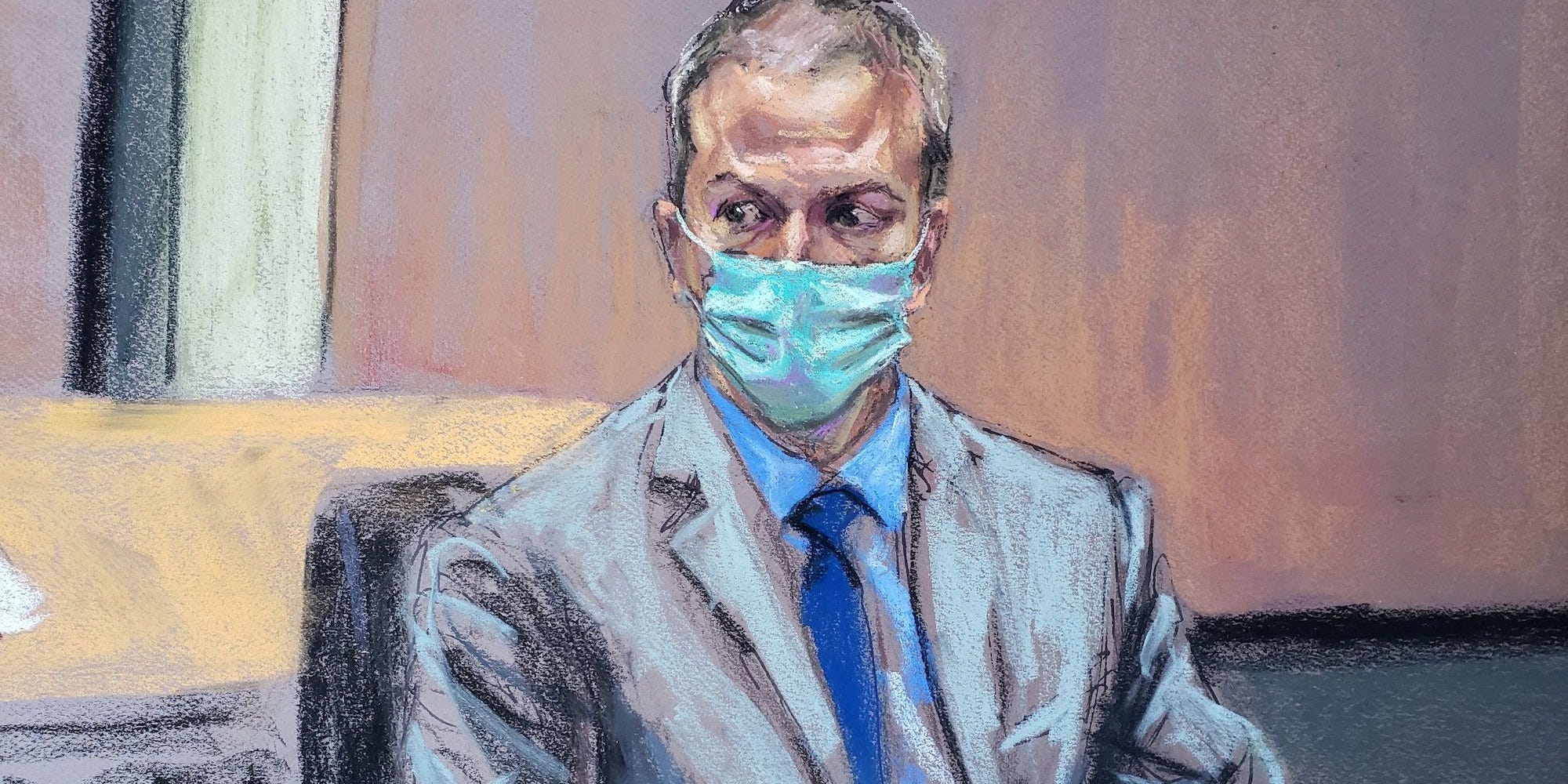
Jane Rosenberg/Reuters
- Insider spoke to an officer who recently left the Minneapolis Police Department.
- He said officers are not trained to kneel on suspects' necks, as Derek Chauvin did to George Floyd.
- But he said his understanding of the autopsy is that Floyd died of a drug overdose, not killed by Chauvin.
- Visit Insider's homepage for more stories.
A former Minneapolis police officer told Insider that Derek Chauvin violated protocol while kneeling on George Floyd's neck for several minutes last year, but he doesn't think the officer's actions led to Floyd's death.
The former officer, who spoke to Insider on the condition of anonymity, left the department days before Chauvin's trial started on March 29. The former officer's identity is known to Insider.
'I never taught the officers to kneel on anybody's neck'
The former officer said he believes Chauvin can't get a fair trial in Minneapolis, and that it should have been moved elsewhere.
He said he also doesn't buy Chauvin's claim that he was following departmental procedure during the arrest. That sentiment was echoed at the trial, where Minneapolis Police Chief Medaria Arradondo testified that Chauvin's hold on Floyd was not part of the department's training.
"I was a use-of-force instructor," the former officer told Insider. "I never taught the officers to kneel on anybody's neck."
"We were told to put the knee on shoulders, on the top of the back, but never on their neck. It's just not a good thing to do."

AP Photo/Jim Mone
But the former officer also said he doesn't believe Chauvin's hold caused Floyd's death, and that Chauvin should not be convicted of the charges against him. Chauvin is being tried on charges of second-degree unintentional murder, third-degree murder, and second-degree manslaughter.
The former officer said he believes Floyd died of a drug overdose, citing the Hennepin County Medical Examiner's autopsy report.
That report concluded that Floyd's death was a homicide, but listed the cause of death as a "cardiopulmonary arrest complicating law enforcement subdual, restraint, and neck compression" - which meant Floyd's heart stopped as he was being restrained.
The autopsy also showed that Floyd had fentanyl and methamphetamine in his system. Fentanyl is a super-strong synthetic opioid, and researchers say just 3 milligrams of it is enough to kill an average-sized man.
The key challenge of the case is convincing the jury what caused Floyd's heart to stop: Chauvin's kneeling on Floyd's neck, as the prosecution argues, or a combination of a heart issue and drugs, as the defense argues.
"I've seen overdoses before and what I saw was basically George Floyd dying of an overdose," the former officer said, referring to bystander videos of Floyd's arrest. "That's what it appears like to me."
An independent autopsy paid for by Floyd's family differed from the official report, saying the cause of death was mechanical asphyxiation - strangulation as a result of compressing the neck.
'The world is looking for blood'
The former officer said that while he believes that Chauvin didn't cause Floyd's death, he thinks the jury could end up convicting Chauvin anyway.
"I think the world is looking for blood right now, looking for justice for George Floyd," the former officer said.
He told Insider he also believes the trial, no matter the outcome, could lead to violent protests in the city.
"That's why I left," he said. "I'm not going to get myself killed or injured before I retired."
In fact, protests once again flared in Minneapolis Sunday night following the news that a 20-year-old Black man had shot dead by a police officer during a traffic stop.
When contacted for comment, a City of Minneapolis spokesman told Insider he was "unable to discuss any aspects of the trial or case" due to a judicial mandate. The city now handles the police department's press inquiries after the city council voted to do away with the MPD's public information officer after Floyd's death.